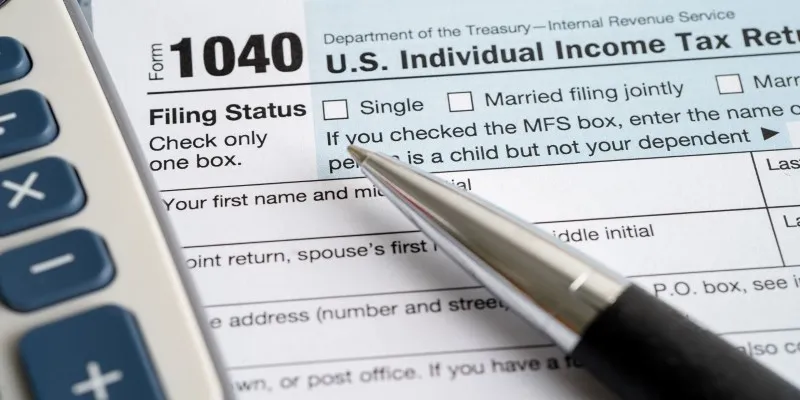Maxed Out Your 401(k) Contributions by Mistake? Here’s Help
Contributing to your 401(k) is a smart step toward securing your financial future, but it’s possible to over-contribute without realizing it. Over- contributing could occur if you switch jobs, have multiple employers, or miscalculate your deductions. While it’s a common mistake, it’s important to address it promptly to avoid penalties and ensure compliance with IRS regulations. Thankfully, there are clear steps you can take to fix the error. This guide will help you understand the process and take the necessary actions to correct your over-contribution.
What are Contribution Limits?

The IRS has announced that the 401(k) contribution limit for employees will increase to $23,500 in 2025, up from $23,000 in 2024. For those aged 50 or older, there’s an additional catch-up contribution allowance. In 2025, this amount is $7,500, meaning you can contribute up to $31,000 to your 401(k) ($30,500 in 2024).
Additionally, the SECURE 2.0 Act introduces super catch-up contributions for individuals aged 60 to 63, starting in 2025. This provision allows contributions of up to $11,250, which is either $10,000 or 150% of the standard catch-up limit for the year, as outlined by the 2022 law.
It’s important to note that these limits don’t include employer contributions. In 2025, the combined employee and employer contribution limit rises to $70,000, up from $69,000 in 2024. However, employees must ensure they don’t exceed the individual contribution limit to avoid compliance issues.
Identifying the Over-Contribution
To address an over-contribution, you must first recognize the mistake. One common cause of over-contributing is changing jobs in the middle of a year and forgetting that contributions have already been made to an existing 401(k). Additionally, if you have multiple employers with separate 401(k) accounts, it’s possible to exceed the limit unintentionally.
You can also miscalculate your contribution deductions by including bonuses or commissions in your calculation, which may push you above the annual limit. It’s essential to review your contribution history and pay stubs to identify the source of the over-contribution.
Steps to Correct Over-Contribution
If you have over-contributed, don’t panic. There are steps you can take to fix the mistake and ensure compliance with IRS regulations.
Step 1: Notify Your Employer
The first step is to inform your employer about the error as soon as possible. They will need to amend your W-2 form and adjust any future contributions accordingly. This will help prevent further over-contributions from occurring.
Step 2: Request a Refund or Contribution Reversal
If you have made an excess contribution that has not yet been deposited into your account, you can request a refund from your employer. If the contribution has already been deposited, you can ask for a reversal of the excess amount. This will prevent any taxes or penalties being applied to the over-contributed amount.
Step 3: Request an Excess Contribution Withdrawal
If your plan does not allow for refunds or reversals, you must withdraw the excess contribution and any earnings on it as soon as possible. This must be done before April 15th of the calendar year following the tax year in which the excess contributions were made. Failure to do so may result in additional taxes and penalties.
Step 4: Report Your Correct Contributions on Your Tax Return
It’s crucial to report your corrected contribution amount on your tax return for the year in which the error was made. This will ensure that you do not pay taxes on any excess contributions and avoid further penalties.
Tax Implications of Over-Contributing

When you over-contribute to your 401(k), you may face taxes and penalties. The excess contribution is subject to a 6% excise tax, and any earnings on the excess amount are also taxable in the year they were contributed. Additionally, if the excess amount is not withdrawn by April 15th of the following year, it will be subject to an additional 10% early withdrawal penalty.
Preventing Future Over-Contributions
Here are some tips to prevent future over-contributions to your retirement account:
- Monitor Contribution Limits: Stay informed about the annual contribution limits for your retirement account, such as a 401(k) or IRA. These limits are set by the IRS and may change each year. Regularly review and adjust your contributions to ensure they stay within the allowed limits.
- Coordinate with Multiple Accounts: If you contribute to multiple retirement accounts, such as multiple 401(k) plans or both a 401(k) and an IRA, ensure that your total contributions across all accounts do not exceed the allowed limit. Coordinate and monitor your contributions to avoid unintentional over-contributions.
- Automate Contributions: Set up automatic contributions to your retirement account, ensuring that the contribution amount aligns with the annual limits. This can help you avoid accidentally exceeding the limits due to manual errors or oversights.
- Consult with a Financial Advisor: Seek guidance from a qualified financial advisor who can assist you in managing your retirement contributions and help you stay within the allowable limits. They can provide personalized advice based on your financial goals and circumstances.
By implementing these preventive measures, you can maintain compliance with contribution limits and avoid potential tax implications and penalties associated with over-contributions to your retirement account.
Conclusion
Retirement planning is a crucial aspect of long-term financial stability, and it’s essential to be mindful of contribution limits to retirement accounts to avoid unintended consequences. By understanding the specific regulations and implementing preventive measures, you can ensure compliance and maximize the benefits of your retirement savings. Remember to coordinate your contributions across multiple retirement accounts, automate contributions to prevent errors, and consult with a financial advisor for personalized guidance. By taking these steps, you can confidently navigate the retirement planning journey and work towards a secure and comfortable future.








